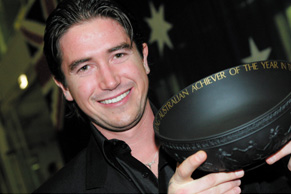The Gala Dinner 2005
On 22 January the Australia Day Foundation invited some of the most creative and talented individuals and leaders from the UK's Australian community to Australia House to celebrate the Great Australian Outback. Guests enjoyed a contemporary Australian menu designed by Scott Webster and a dazzling performance from musical theatre star, Caroline O’Connor.
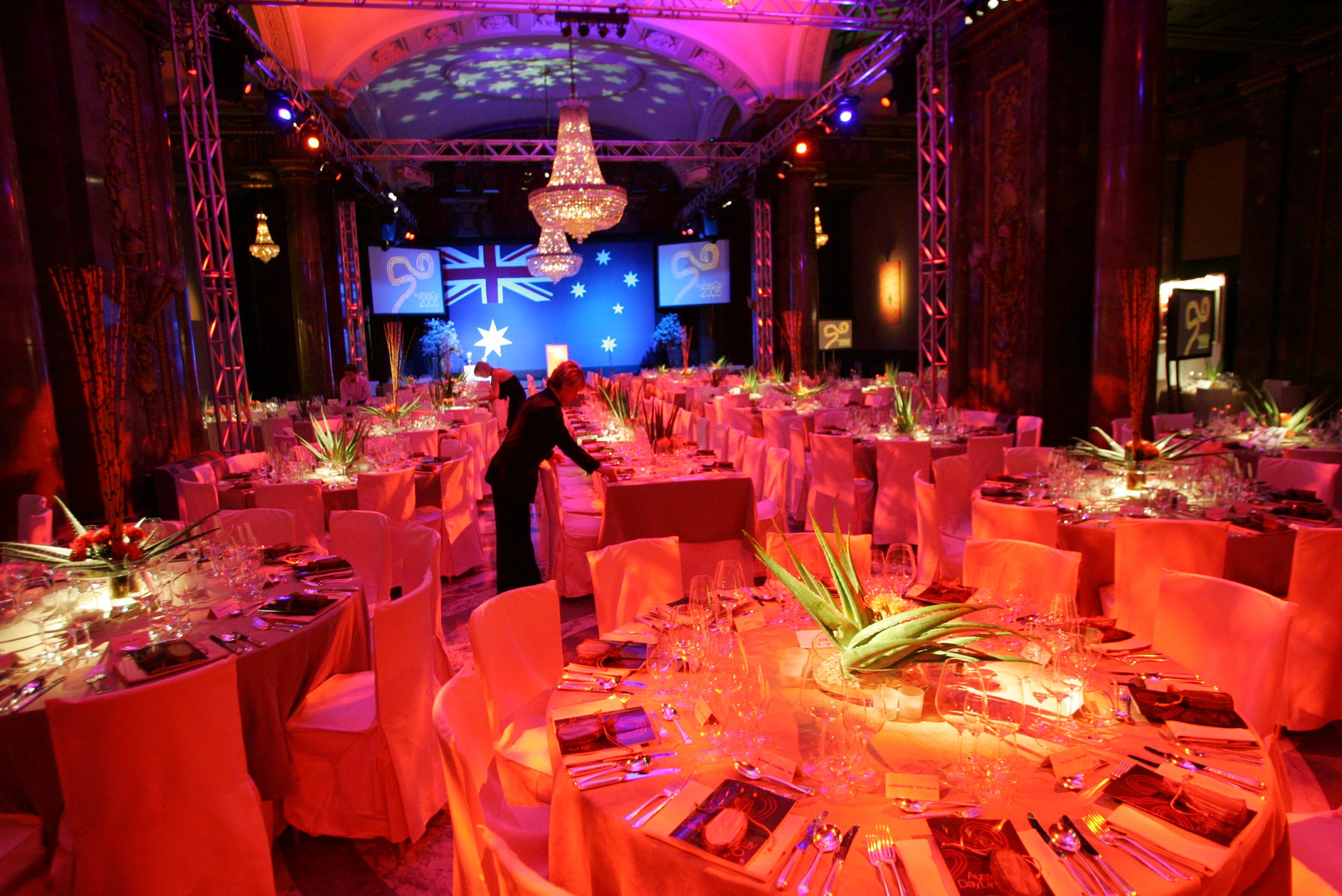

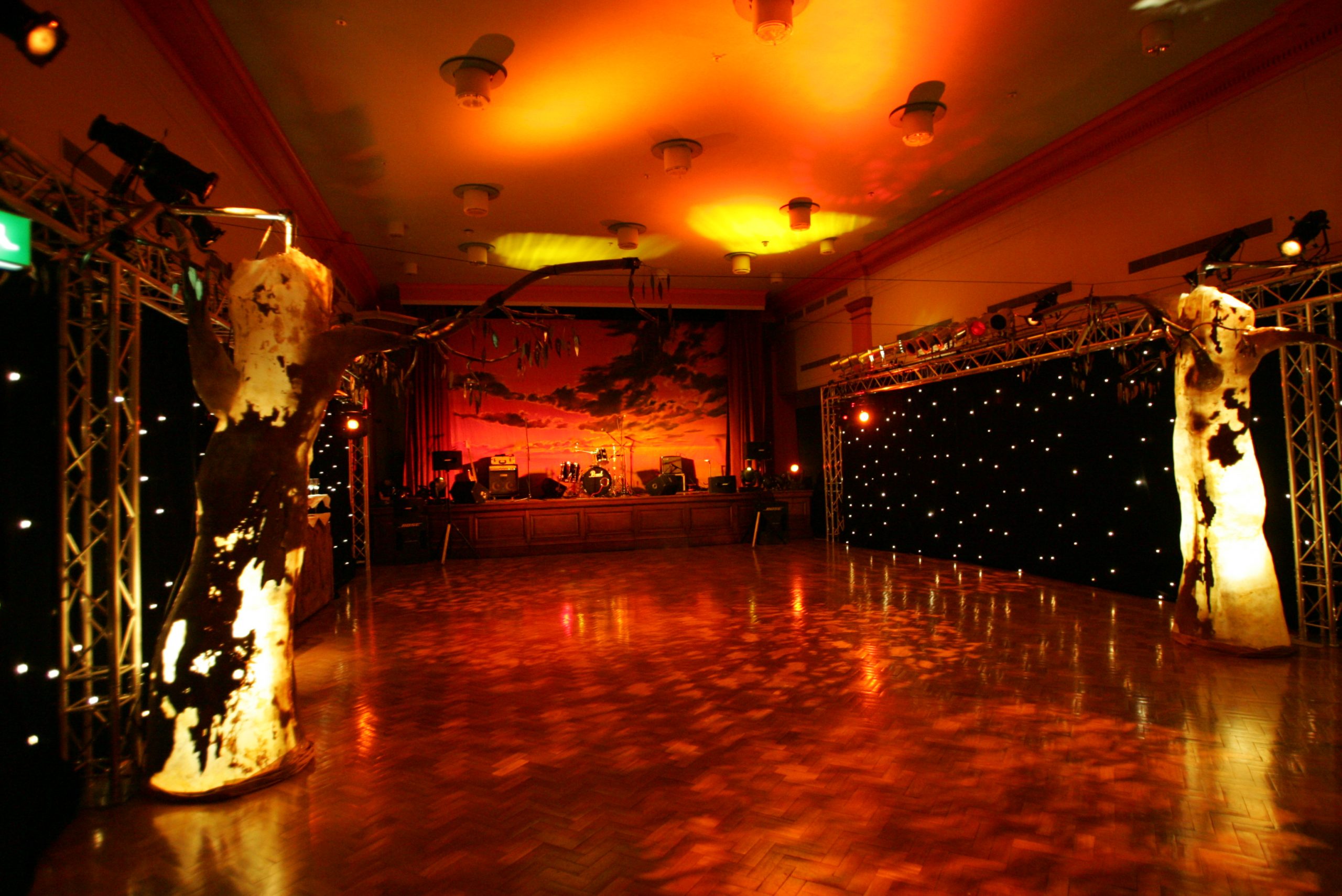
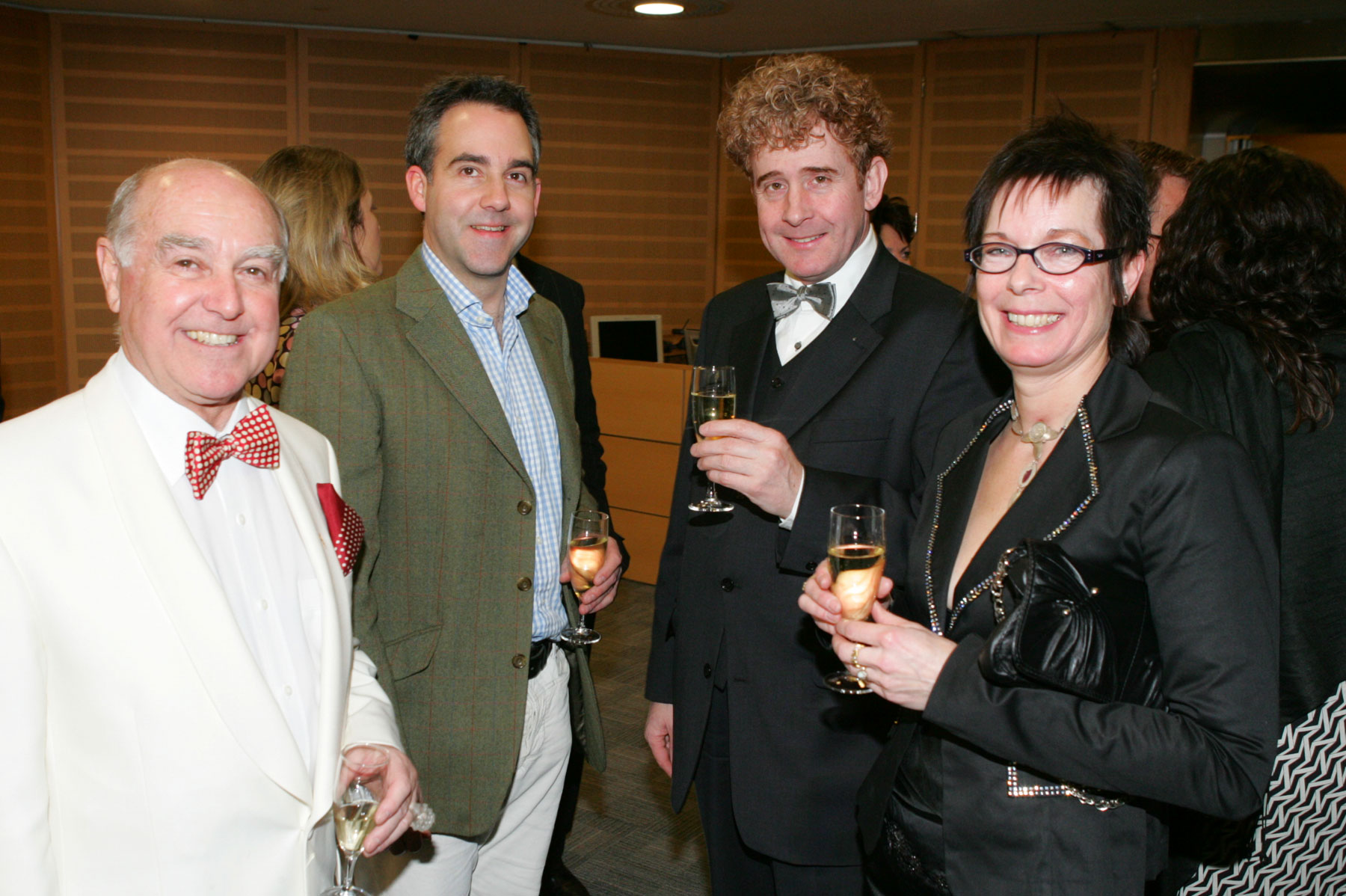
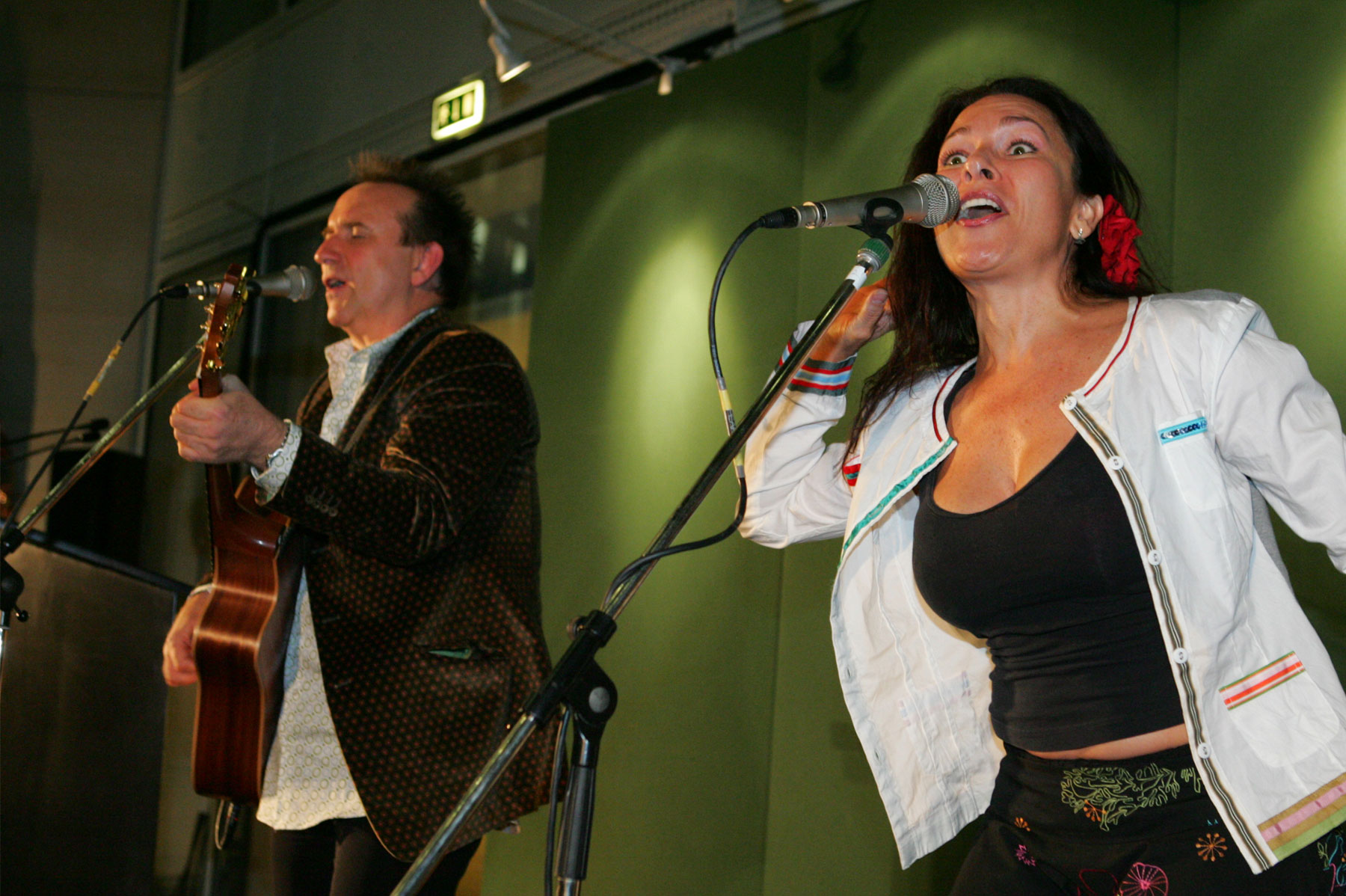
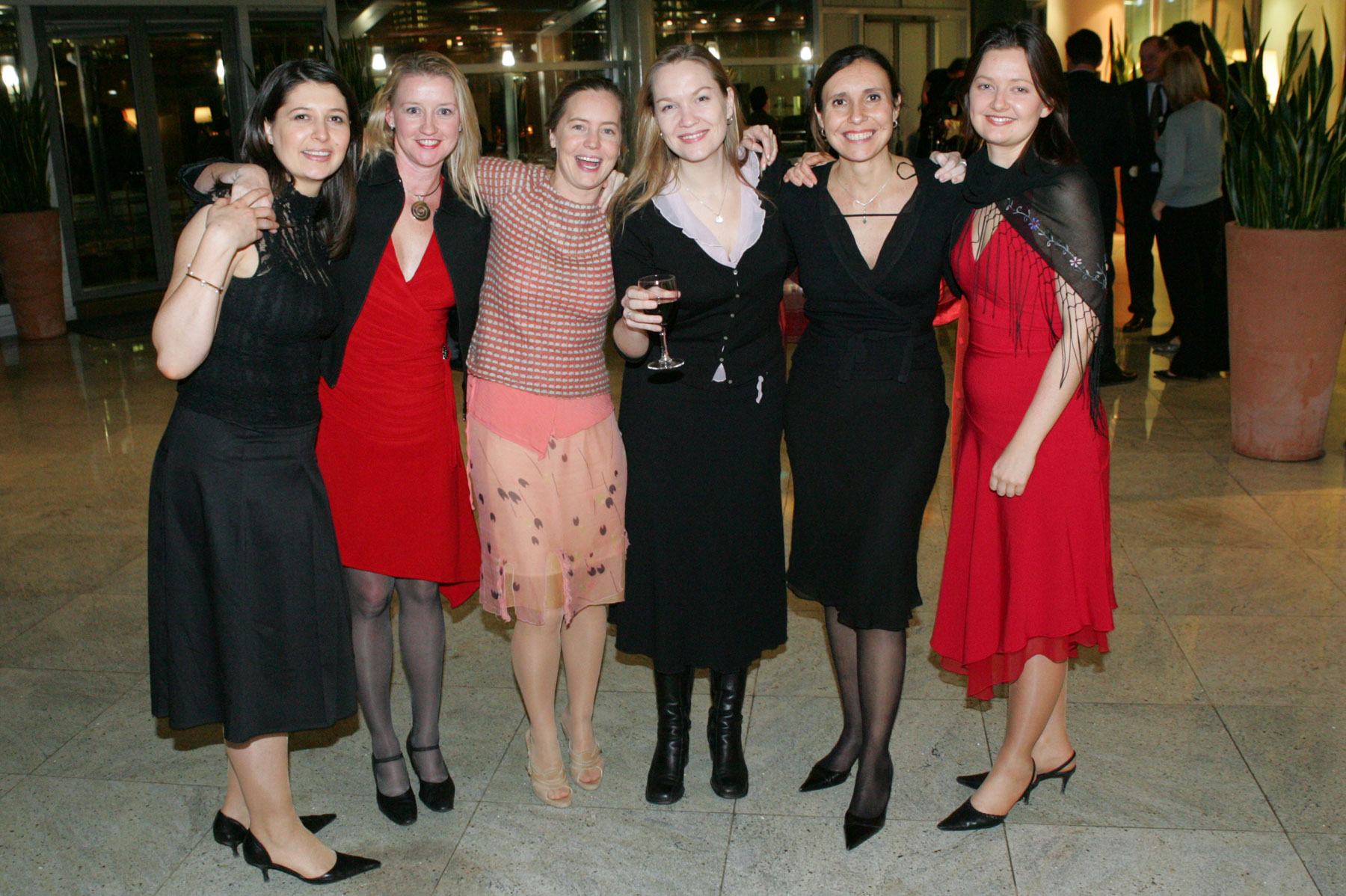

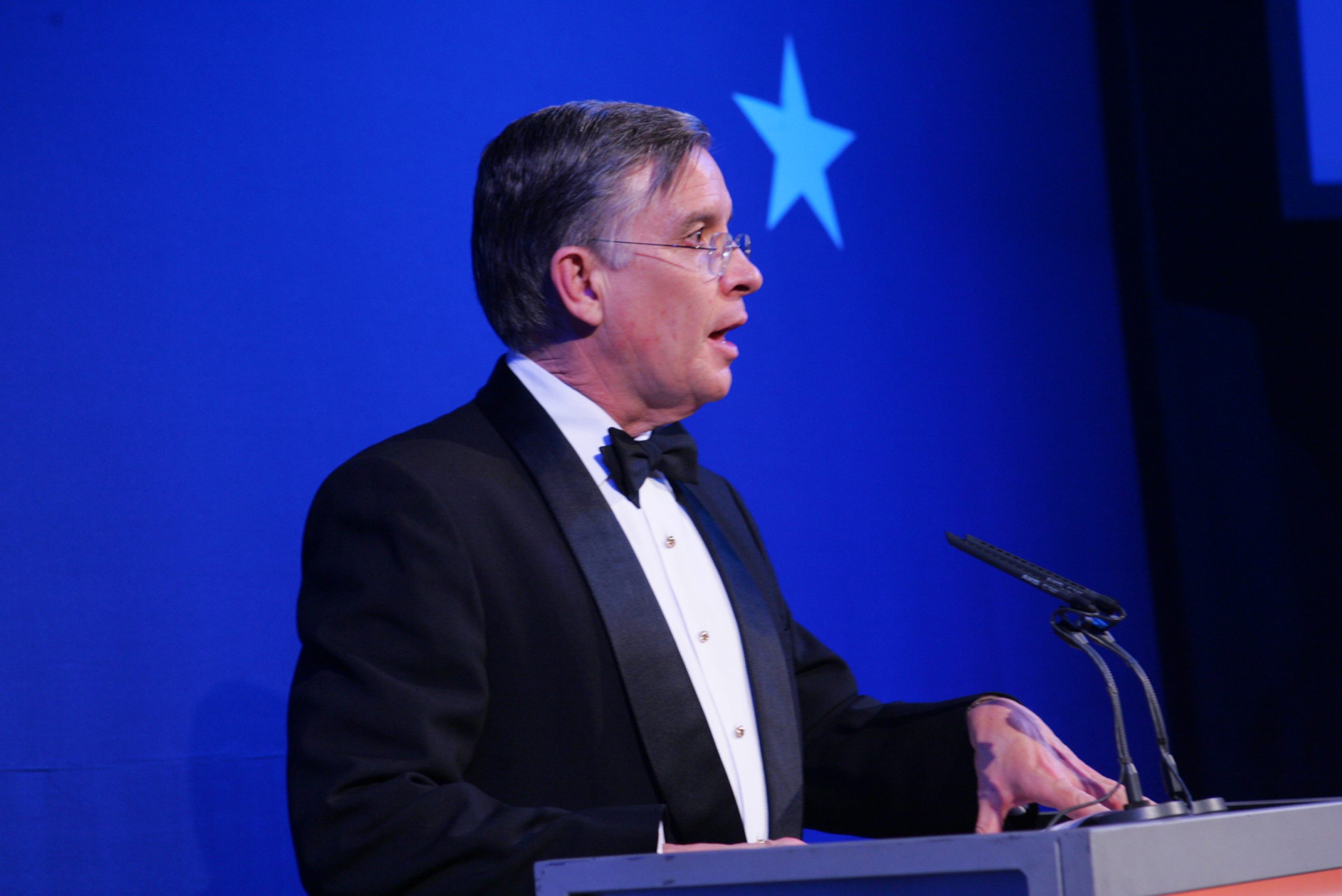
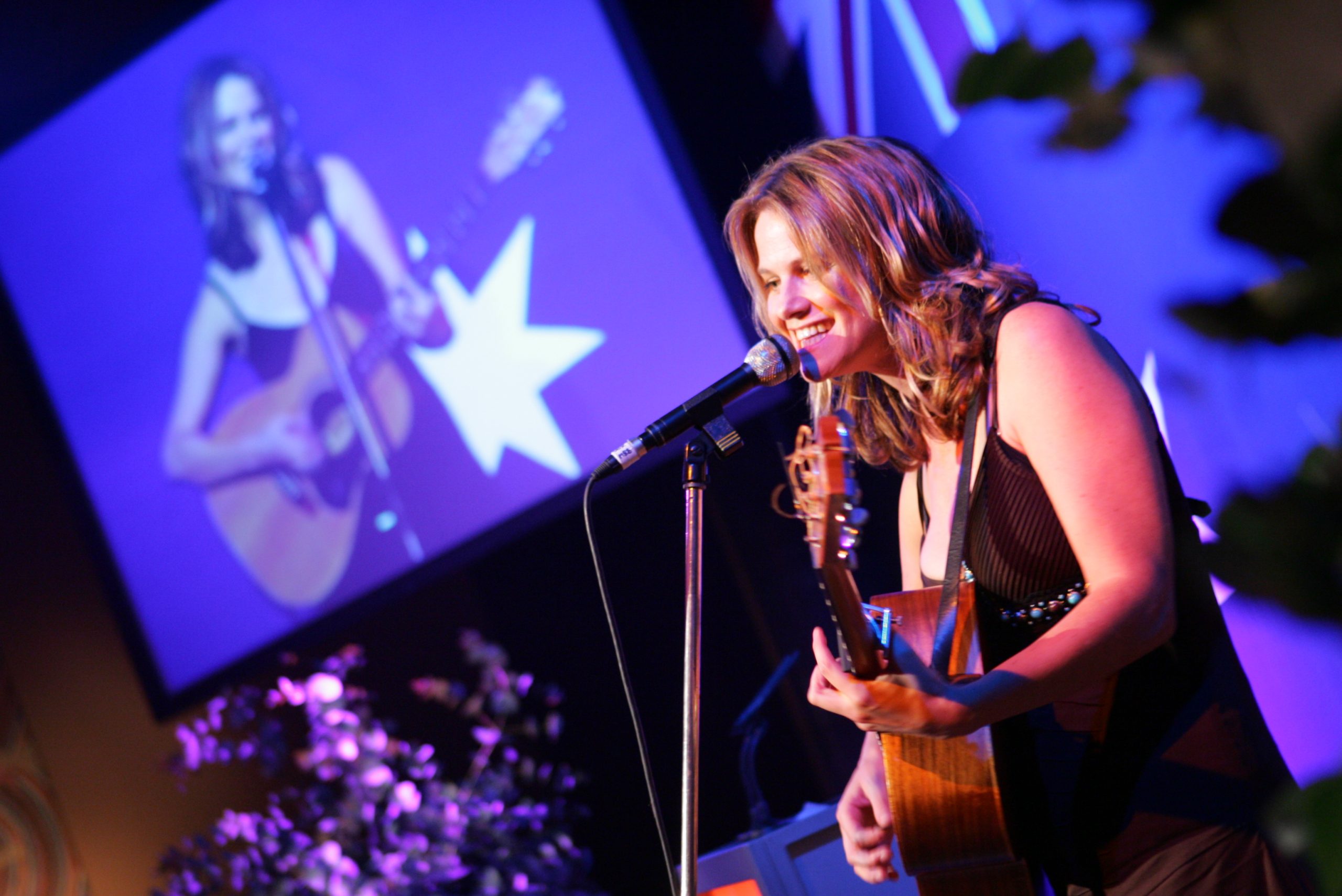
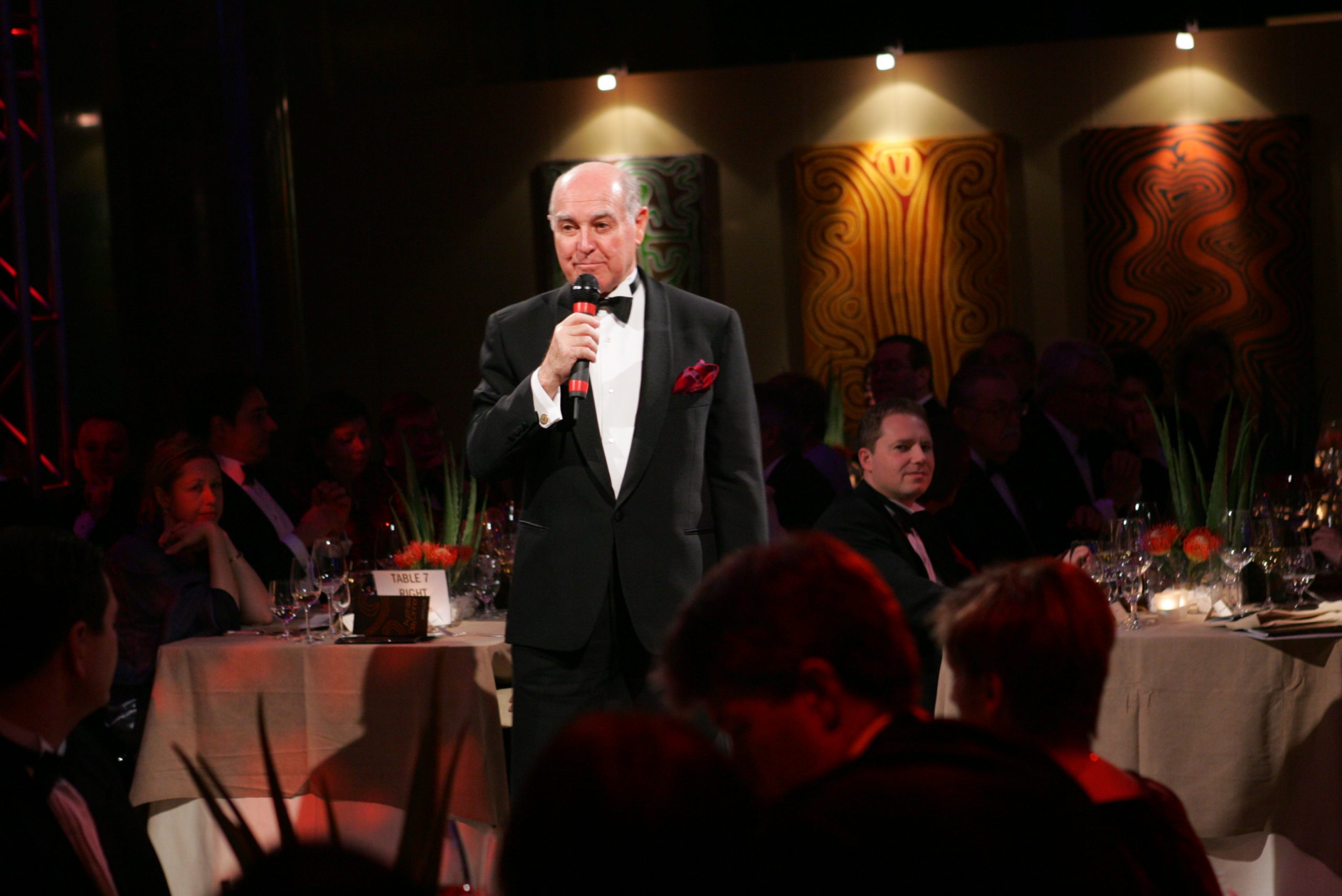
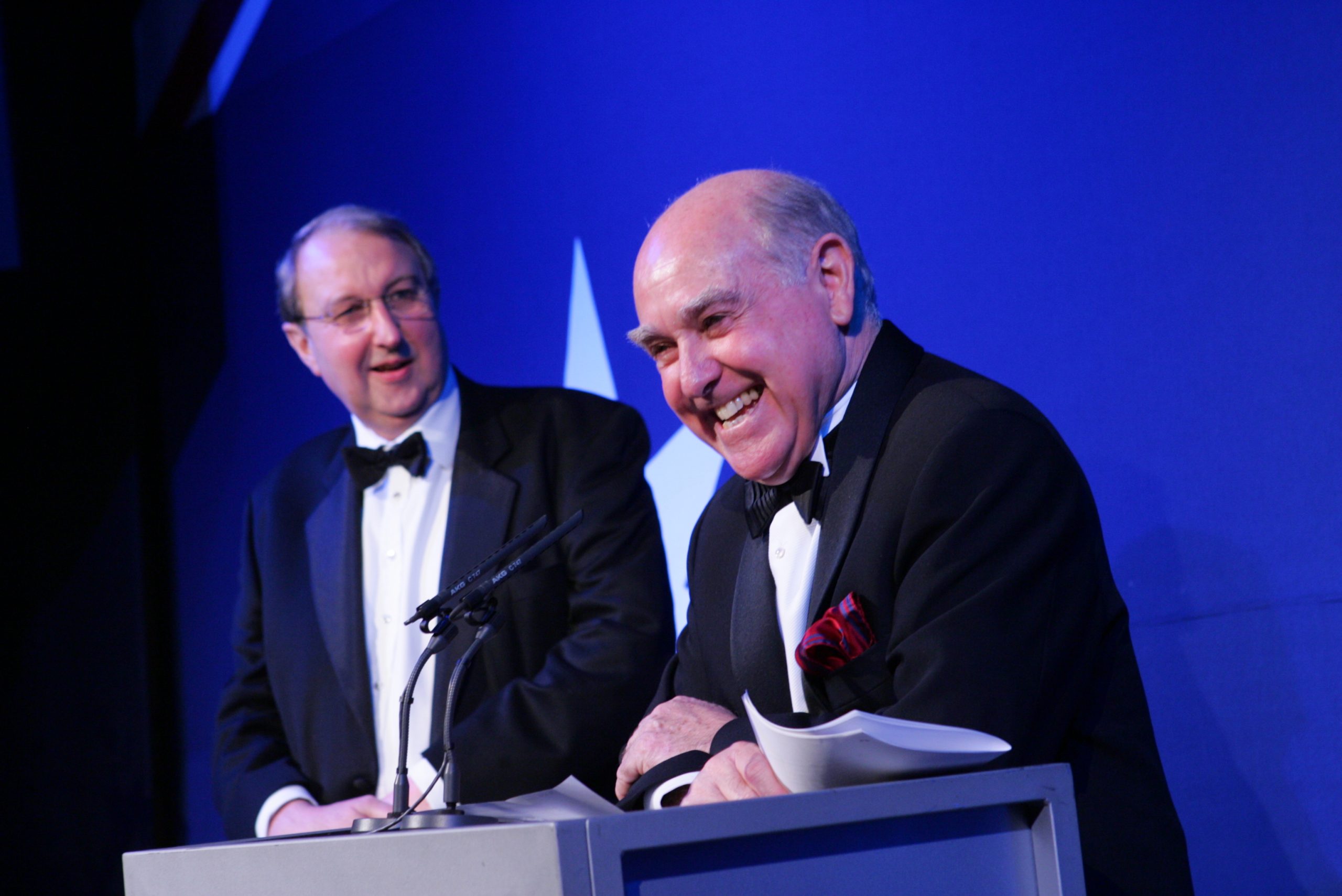
The Theme

The Great Australian Outback
This year Australia House echoed with the sounds of the bush and our guests were treated to a spectacular ‘Outback’ experience. The Rebecca Hossack Gallery generously loaned original indigenous artwork from their collection and the design of our literature included elements of the Jimmy Pike ‘Mantamarta’ 1989 acrylic on canvas artwork.
The Chef
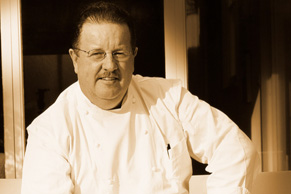
In 2005 we were delighted to welcome back for a second year Osia’s Scott Webster to design a menu to celebrate the Great Australian Outback. An ambassador for modern Australian cuisine, Webster brought some stunning flavours from home with a menu featuring barramundi and yabbie chowder, and delicious roasted Dorrigo lamb rack.
The Entertainment

West End and Broadway star, Caroline O’Connor wowed guests with a medley of show tunes. We were also treated to performances from Australian baritone, Jeremy Vinogradov and Jackie Bristow, winner of a national songwriting competition, performing her winning song ‘This Is Australia’.
The Award Winners
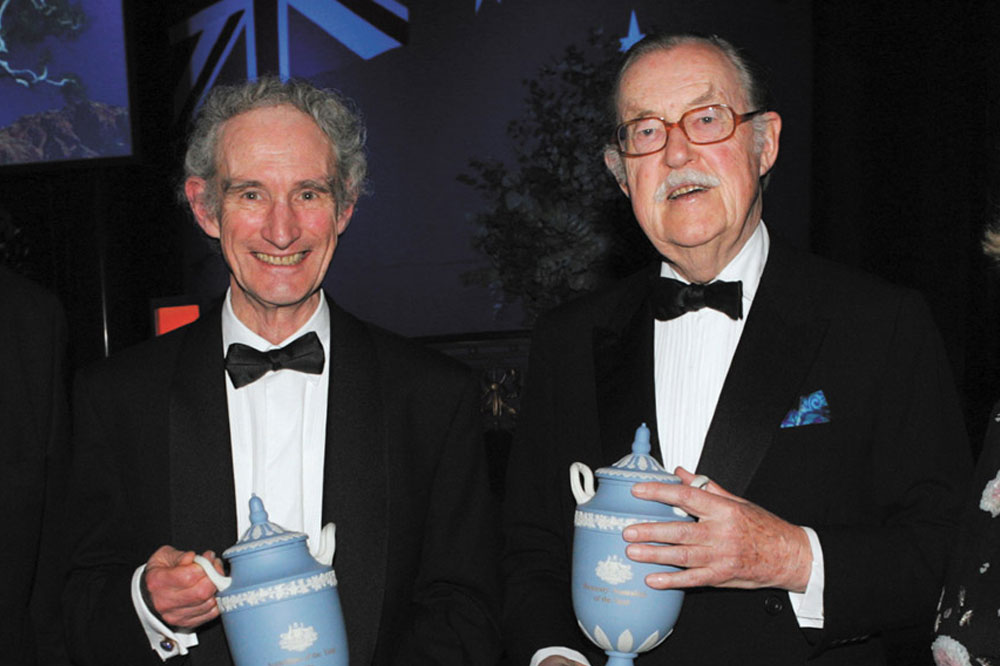
The Right Honourable The Lord May of Oxford OM, AC, FRS, FAA, FTSE, FRSN
Australian of the Year in the UK
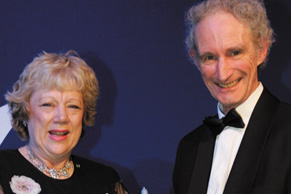
Professor Lord May of Oxford is the most distinguished Australian in Britain today and was recognised in this award for his outstanding achievements in this country, his commitment to global environmental issues and his continuing contributions to Australia.
Robert May obtained his doctorate in theoretical physics from the University of Sydney at the age of 23. His interest in the dynamics of animal populations and population biology took him in 1973 to Princeton University where he remained until he returned to Britain as a Royal Society Research Professor in 1988. From 1988-1995 he held joint Professorships at Imperial College and Oxford University until his appointment in 1995 as Chief Scientific Adviser to the UK Government. In 2000 he was appointed President of the Royal Society - only the second Australian in its 350-year history. The international accolades he has received in his illustrious career are too many to list in full. They include The Royal Swedish Academy Crafoord Prize in 1966 for his ‘quite overwhelming’ influence on contemporary ecological research, the Balzan Prize in 1998 and the Blue Planet Prize in 2001. In 1996 May was Knighted, and in 1998, he was made a Companion of the Order of Australia for ‘services to science’. In 2001 he was made a Life Peer and in 2002, the Queen appointed him to the Order of Merit - only the fifth Australian in its 100-year history. Lord May is a committed advocate for the global environment and urgent issues ranging from species extinction to infectious diseases such as AIDS. And, despite his many years living on this side of the world, Robert May has retained his ‘Australianess’ and regularly travels to Australia to present papers and advise government.
Alan Whicker CBE
Honorary Australian of the Year in the UK
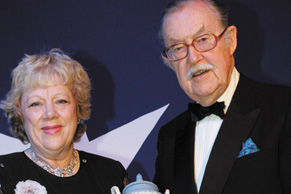
Alan Whicker was awarded 2005 Honorary Australian in the UK for his contribution to putting Australia ‘on the map’. It was through his program Whicker’s World that many people in the UK, and internationally, caught their first glimpses of the scale, wonder and diversity of our country, and encouraged them to travel Down Under.
Alan Whicker started his career in the army and joined the British forces as they advanced through Italy at the end of World War II. He worked as editor of the British Army newspaper and was a war correspondent in Korea and the Canal Zone in Egypt. On his return to Britain in 1957, he started at the BBC as a correspondent for the flagship current affairs program, Tonight. But it was Whicker’s World that made him an international television icon. The series ran for more than three decades and introduced ‘armchair travellers’ to the mudmen of Papua New Guinea and the Alaskan Wilderness. Whicker’s natural ease and charm and his distinctive interviewing style led to exclusive interviews with the reclusive billionaire, John Paul Getty, and the Sultan of Brunei. Whicker pioneered the personality-centred style of documentary that was later followed by others, including Clive James. Whicker also displayed his serious journalistic credentials through his acclaimed interviews with dictators in Paraguay and Haiti, and his documentaries on gun control and plastic surgery. He has been awarded CBE the 2005 honours list in recognition of his lifetime contribution to television and the Nation.
Harry Kewell
Young Australian Achiever of the year in the UK
